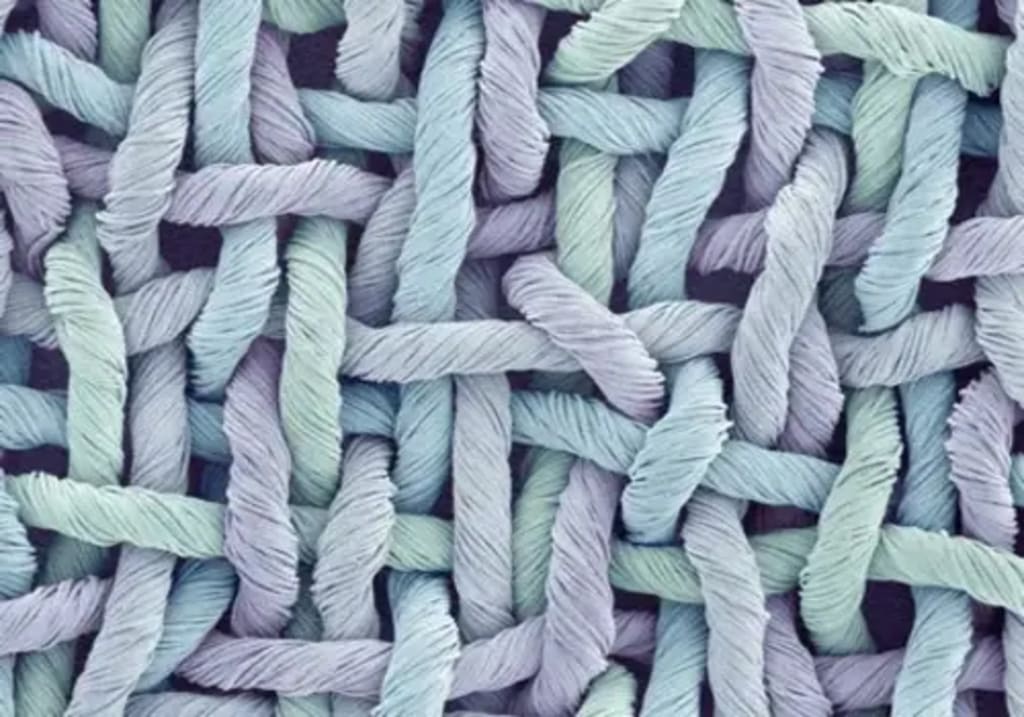Choosing the Right Fabric for Your Sewing Project
When embarking on a sewing project, one of the most crucial decisions you'll make is selecting the right fabric. The fabric you choose can significantly impact the outcome of your project, influencing its appearance, durability, and overall success.

When embarking on a sewing project, one of the most crucial decisions you'll make is selecting the right fabric. The fabric you choose can significantly impact the outcome of your project, influencing its appearance, durability, and overall success. With the multitude of fabrics available, from cotton to silk, denim to velvet, it's essential to have a comprehensive guide to help you make an informed choice. In this blog post, we will delve into the world of fabric selection, providing you with valuable insights to make your sewing projects a success. Throughout this guide, we'll emphasize the importance of choosing high-quality materials, and we'll also mention Avalon Fabrics & Craft, a renowned source for a wide variety of fabrics and crafting supplies.
Understanding Fabric Types
The first step in choosing the right fabric for your sewing project is to understand the different types of fabrics available. Fabrics can vary in terms of fiber content, weight, weave, and finish. Each type of fabric has unique properties that make it suitable for specific projects. Here are some common fabric types and their characteristics:
1. Cotton: Cotton is a popular fabric choice due to its breathability and versatility. It's great for a wide range of projects, including quilting, clothing, and home decor items. Cotton comes in various weights, making it suitable for both lightweight and heavy-duty projects.
2. Silk: Silk is known for its luxurious appearance and feel. It's often used in formal clothing, lingerie, and delicate accessories. However, it can be a bit challenging to work with due to its slippery nature.
3. Denim: Denim is a rugged, sturdy fabric often associated with jeans. It's ideal for creating durable, long-lasting items like pants, jackets, and bags.
4. Velvet: Velvet is a plush, soft fabric with a luxurious texture. It's commonly used for formal wear, upholstery, and decorative items.
5. Linen: Linen is a breathable, lightweight fabric that's perfect for warm-weather clothing, table linens, and casual home decor.
6. Polyester: Polyester is a synthetic fabric known for its durability and resistance to wrinkles and shrinking. It's commonly used in a variety of sewing projects, including activewear and outdoor items.
7. Wool: Wool is warm and insulating, making it suitable for winter clothing and cozy home decor items like blankets and pillows.
8. Rayon: Rayon is a versatile semi-synthetic fabric known for its softness and drape. It's often used in blouses, dresses, and other garments.
9. Organza: Organza is a sheer, lightweight fabric often used for formal wear, bridal gowns, and decorative overlays.
10. Chiffon: Chiffon is another sheer fabric, but it has a more delicate and flowy quality. It's popular for evening wear and special occasion dresses.
Consider Your Project's Requirements
Once you have a basic understanding of different fabric types, the next step is to consider your sewing project's requirements. Ask yourself the following questions:
1. What is the purpose of the item you're creating? Is it clothing, home decor, or something else entirely?
2. What are the care instructions for the finished project? Some fabrics require special care, and you'll want to ensure your project aligns with your maintenance preferences.
3. Will the fabric be exposed to heavy wear and tear? For items that will see a lot of use, durability should be a primary concern.
4. Do you have any specific design or aesthetic preferences? Consider the texture, color, and pattern of the fabric that will best achieve your desired look.
5. Is the fabric easy to work with? Beginners might want to start with more forgiving fabrics, like cotton, before tackling tricky materials like silk or velvet.
6. Will the fabric be comfortable to wear or use? Comfort is crucial for clothing and items meant for daily use.
Avalon Fabrics & Craft: A Reliable Source for Quality Fabrics
When it comes to choosing the right fabric for your sewing project, a trusted supplier like Avalon Fabrics & Craft can be your go-to resource. They offer a wide variety of fabrics, ensuring that you have access to the materials you need for your specific project. Whether you're looking for cotton for a cozy quilt, silk for an elegant evening gown, or denim for a rugged tote bag, they have you covered.
One of the advantages of choosing Avalon Fabrics & Craft is the assurance of quality. When selecting fabrics for your projects, you want to ensure that you're working with high-quality materials. Inferior fabrics can lead to frustrating sewing experiences, as they may be prone to tearing, fraying, or not holding up well over time. By choosing a reputable supplier like Avalon Fabrics & Craft, you can be confident in the quality of the materials you purchase.
Understanding Fabric Characteristics
In addition to fabric types, it's essential to consider specific fabric characteristics when making your selection. These characteristics include:
1. Fabric Weight: Fabric weight refers to the thickness and heaviness of the material. Lightweight fabrics like chiffon and organza are suitable for delicate, airy projects, while heavyweight fabrics like denim and wool are better for sturdier items.
2. Weave: The weave of a fabric affects its texture and appearance. Common weaves include plain weave, twill weave, and satin weave. Each weave type offers a unique look and feel.
3. Stretch and Drape: Some fabrics have stretch, making them ideal for garments that require flexibility, while others have a more structured drape that works well for tailored clothing.
4. Pattern and Print: Consider the pattern or print on the fabric. Floral, geometric, and solid colors can all have different visual effects on your finished project.
5. Finish: Fabric finishes can range from matte to shiny, adding to the aesthetic of your project. Consider how the finish of the fabric complements your design.
Fabric Testing and Handling
When possible, it's a good idea to physically touch and handle the fabric you're considering. This can help you assess its texture, drape, and quality. It's also an opportunity to check for any defects or flaws in the fabric.
If you're unable to visit a physical store, many online fabric retailers, including Avalon Fabrics & Craft, offer samples of their materials for a nominal fee. These samples can provide a good sense of the fabric's look and feel before committing to a larger purchase.
Matching Fabric to Your Skill Level
Your sewing experience and skill level should also influence your fabric choice. While it's essential to challenge yourself and learn new techniques, beginners may find it less frustrating to work with forgiving fabrics. As you gain experience and confidence, you can gradually experiment with more complex materials.
Final Thoughts
Choosing the right fabric for your sewing project is a significant decision that can make or break the success of your endeavor. Understanding fabric types, considering your project's requirements, and relying on trusted suppliers like Avalon Fabrics & Craft are key steps in making the right choice. By taking the time to select the appropriate fabric, you'll ensure that your sewing projects are not only beautiful but also durable and well-suited to their intended purpose.
Remember that practice makes perfect, and don't be discouraged by any challenges you encounter along the way. Sewing is a rewarding





Comments
Olivia Bayly is not accepting comments at the moment
Want to show your support? Send them a one-off tip.